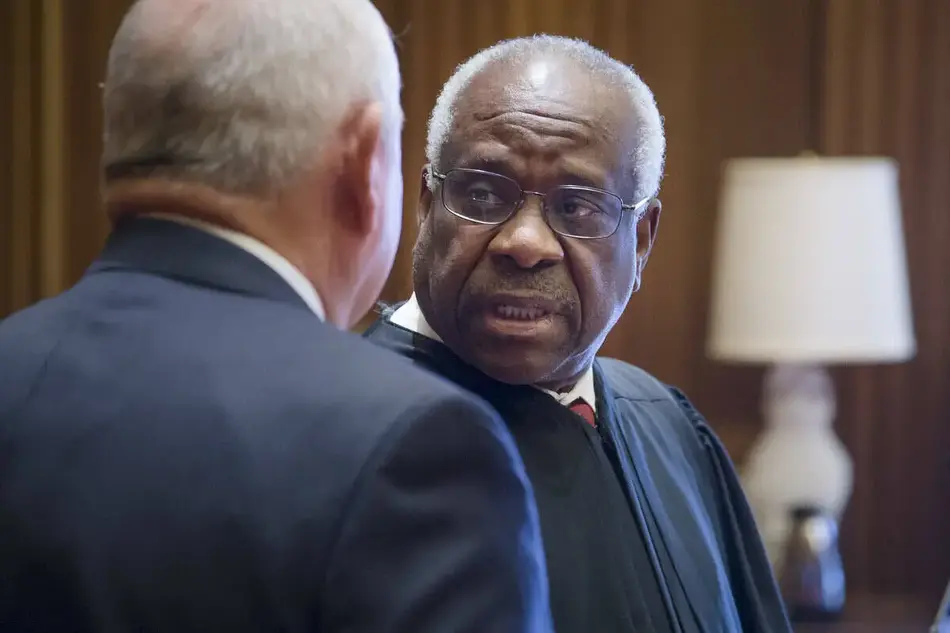
Washington D.C. – In a closely divided decision, the U.S. Supreme Court refused to hear a case challenging Washington state’s law banning conversion therapy for minors. However, Justice Clarence Thomas issued a fiery dissent, arguing that the law infringes upon the First Amendment’s guarantee of free speech.
The Washington law, known as SB 5722, prohibits licensed therapists from engaging in any practices aimed at changing a minor’s sexual orientation or gender identity. The law was enacted in 2018 following a growing body of evidence demonstrating the harmful and ineffective nature of conversion therapy. Major medical organizations, including the American Psychiatric Association and the American Psychological Association, have condemned the practice, while numerous studies have linked it to increased rates of depression, anxiety, and suicide among LGBTQ individuals.
Despite the overwhelming scientific consensus, Justice Thomas argued that SB 5722 “restricts speech based on its content or viewpoint” and is therefore unconstitutional. He claimed that the law prevents therapists from providing their clients with any information or guidance that deviates from the state-approved message of affirming a minor’s gender identity.
“There is little question that SB 5722 regulates speech and therefore implicates the First Amendment,” Thomas wrote. “True, counseling is a form of therapy, but it is conducted solely through speech. A law that restricts speech based on its content or viewpoint is presumptively unconstitutional and may be upheld only if the state can prove that the law is narrowly tailored to serve compelling state interests.”
This view was echoed by Justices Samuel Alito and Brett Kavanaugh, who joined Thomas in calling for the court to take up the case. Alito described the issue as “a question of national importance,” while Kavanaugh emphasized the need for “careful scrutiny” of any laws that restrict speech.
“It is beyond dispute that these laws restrict speech,” Alito stated, “and all restrictions on speech merit careful scrutiny.”
However, the majority of the court, comprised of the remaining six justices, disagreed. They declined to grant certiorari, the legal term for accepting a case for review, without issuing any explanation for their decision.
This outcome leaves Washington’s law in place and represents a victory for advocates who have long sought to protect minors from the harmful effects of conversion therapy. However, Justice Thomas’ dissent raises significant concerns about the potential for future legal challenges to similar laws in other states.
ALSO READ | Florida Judge Upholds ‘Fairness in Women’s Sports Act’, Impacting Transgender Athletes
The Movement Advancement Project, an organization that tracks LGBTQ legislation across the country, reports that 22 states and the District of Columbia currently have laws banning conversion therapy for minors. With Justice Thomas signaling his willingness to strike down such laws, the fight against conversion therapy is likely to continue in the courts for years to come.
Meanwhile, LGBTQ advocates and mental health professionals remain committed to raising awareness about the dangers of conversion therapy and ensuring that all minors are protected from this harmful practice.
“The Human Rights Campaign has published the statements of 15 medical groups’ positions against conversion therapy, and of a coalition of medical, mental health, education, and religious groups also opposing the practice,” said a statement from the organization.
Furthermore, a statement from the Independent Forensic Expert Group on Conversion Therapy warned that “conversion therapy methods can include physical and psychological violence.”
Adding to the chorus of condemnation, a 2020 study by the Williams Institute at UCLA School of Law found that “non-transgender LGB people who experienced conversion therapy were almost twice as likely to think about suicide and to attempt suicide compared to their peers who hadn’t experienced conversion therapy.”
“Conversion therapy can lead to depression, anxiety, decreased self-esteem, substance abuse, social isolation, and even suicidal thoughts and behaviors,” stated the American Psychological Association.
Likewise, the American Academy of Pediatrics has expressed its strong opposition to conversion therapy, citing its ineffectiveness and harm to the mental and physical health of LGBTQ youth.
“The AAP strongly opposes the practice of conversion therapy because it is clinically ineffective and harmful to the mental and physical health of LGBTQ youth,” stated the organization.
These statements and findings serve as stark reminders of the devastating impact of conversion therapy and underscore the importance of laws like Washington’s SB 5722 in protecting vulnerable minors.
The Supreme Court’s decision not to hear the case challenging Washington’s conversion therapy ban marks a significant victory for public health and LGBTQ advocates. However, Justice Thomas’ dissent highlights the ongoing fight against this harmful practice and the potential for future legal challenges. With 22 states and D.C. currently having conversion therapy bans in place, the battle for nationwide protection of minors continues. Raising awareness about the dangers of conversion therapy and advocating for comprehensive legislation remains crucial in ensuring the safety and well-being of LGBTQ youth across the United States.
ALSO READ | Harvard Stands with President Claudine Gay Against Political Backlash